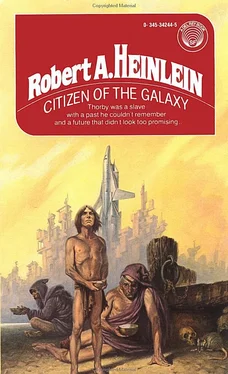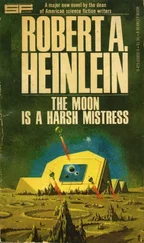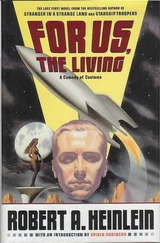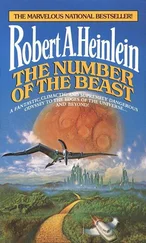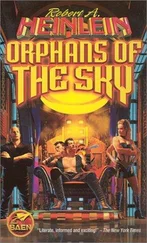Robert Heinlein - Citizen of the Galaxy
Здесь есть возможность читать онлайн «Robert Heinlein - Citizen of the Galaxy» весь текст электронной книги совершенно бесплатно (целиком полную версию без сокращений). В некоторых случаях можно слушать аудио, скачать через торрент в формате fb2 и присутствует краткое содержание. Жанр: Фантастика и фэнтези, на английском языке. Описание произведения, (предисловие) а так же отзывы посетителей доступны на портале библиотеки ЛибКат.
- Название:Citizen of the Galaxy
- Автор:
- Жанр:
- Год:неизвестен
- ISBN:нет данных
- Рейтинг книги:5 / 5. Голосов: 1
-
Избранное:Добавить в избранное
- Отзывы:
-
Ваша оценка:
- 100
- 1
- 2
- 3
- 4
- 5
Citizen of the Galaxy: краткое содержание, описание и аннотация
Предлагаем к чтению аннотацию, описание, краткое содержание или предисловие (зависит от того, что написал сам автор книги «Citizen of the Galaxy»). Если вы не нашли необходимую информацию о книге — напишите в комментариях, мы постараемся отыскать её.
Citizen of the Galaxy — читать онлайн бесплатно полную книгу (весь текст) целиком
Ниже представлен текст книги, разбитый по страницам. Система сохранения места последней прочитанной страницы, позволяет с удобством читать онлайн бесплатно книгу «Citizen of the Galaxy», без необходимости каждый раз заново искать на чём Вы остановились. Поставьте закладку, и сможете в любой момент перейти на страницу, на которой закончили чтение.
Интервал:
Закладка:
He had been attending the ship's school. Baslim had given him a broad education, but this fact did not stand out to his instructors, since most of what they regarded as necessary -- the Finnish language as they spoke it, the history of the People and of Sisu, trading customs, business practices, and export and import laws of many planets, hydroponics and ship's economy, ship safety and damage control -- were subjects that Baslim had not even touched; he had emphasized languages, science, mathematics, galactography and history. The new subjects Thorby gobbled with a speed possible only to one renshawed by Baslim's strenuous methods. The Traders needed applied mathematics -- bookkeeping and accounting, astrogation, nucleonics for a hydrogen-fusion-powered n-ship. Thorby splashed through the first, the second was hardly more difficult, but as for the third, the ship's schoolmaster was astounded that this ex-fraki had already studied multi-dimensional geometries.
So he reported to the Captain that they had a mathematical genius aboard.
This was not true. But it got Thorby reassigned to the starboard fire-control computer.
The greatest hazard to trading ships is in the first and last legs of each jump, when a ship is below speed-of-light. It is theoretically possible to detect and intercept a ship going many times speed-of-light, when it is irrational to the four-dimensional space of the senses; in practice it is about as easy as hitting a particular raindrop with a bow and arrow during a storm at midnight. But it is feasible to hunt down a ship moving below speed-of-light if the attacker is fast and the victim is a big lumbering freighter.
The Sisu had acceleration of one hundred standard gravities and used it all to cut down the hazard time. But a ship which speeds up by a kilometer per second each second will take three and one half standard days to reach speed-of-light.
Half a week is a long, nervous time to wait. Doubling acceleration would have cut danger time by half and made the Sisu as agile as a raider -- but it would have meant a hydrogen-fission chamber eight times as big with parallel increase in radiation shielding, auxiliary equipment, and paramagnetic capsule to contain the hydrogen reaction; the added mass would eliminate cargo capacity. Traders are working people; even if there were no parasites preying on them they could not afford to burn their profits in the inexorable workings of an exponential law of multi-dimensional physics. So the Sisu had the best legs she could afford-but not long enough to outrun a ship unburdened by cargo.
Nor could Sisu maneuver easily. She had to go precisely in the right direction when she entered the trackless night of n-space, else when she came out she would be too far from market; such a mistake could turn the ledger from black to red. Still more hampering, her skipper had to be prepared to cut power entirely, or risk having his in-ship artificial gravity field destroyed -- and thereby make strawberry jam of the Family as soft bodies were suddenly exposed to one hundred gravities.
This is why a captain gets stomach ulcers; it isn't dickering for cargoes, figuring discounts and commissions, and trying to guess what goods will show the best return. It's not long jumps through the black -- that is when he can relax and dandle babies. It is starting and ending a jump that kills him off, the long aching hours when he may have to make a split-second decision involving the lives -- or freedom -- of his family.
If raiders wished to destroy merchant ships, Sisu and her sisters would not stand a chance. But the raider wants loot and slaves; it gains nothing simply to blast a ship.
Merchantmen are limited by no qualms; an attacking ship's destruction is the ideal outcome. Atomic target-seekers are dreadfully expensive, and using them up is rough on profit-and-loss -- but there is no holding back if the computer says the target can be reached -- whereas a raider will use destruction weapons only to save himself. His tactic is to blind the trader, burn out her instruments so that he can get close enough to paralyze everyone aboard -- or, failing that, kill without destroying ship and cargo.
The trader runs if she can, fights if she must. But when she fights, she fights to kill.
Whenever Sisu was below speed-of-light, she listened with artificial senses to every disturbance in multi-space, the whisper of n-space communication or the "white" roar of a ship boosting at many gravities. Data poured into the ship's astrogational analog of space and the questions were: Where is this other ship? What is its course? speed? acceleration? Can it catch us before we reach n-space?
If the answers were threatening, digested data channeled into port and starboard fire-control computers and Sisu braced herself to fight. Ordnancemen armed A-bomb target seekers, caressed their sleek sides and muttered charms; the Chief Engineer unlocked the suicide switch which could let the power plant become a hydrogen bomb of monstrous size and prayed that, in final extremity, he would have the courage to deliver his people into the shelter of death; the Captain sounded the clangor calling the ship from watch-and-watch to General Quarters. Cooks switched off fires; auxiliary engineers closed down air circulation; farmers said good-by to their green growing things and hurried to fighting stations; mothers with babies mustered, then strapped down and held those babies tightly.
Then the waiting started.
But not for Thorby -- not for those assigned to fire-control computers. Sweating into their straps, for the next minutes or hours the life of Sisu is in their hands. The fire-control computer machines, chewing with millisecond meditation data from the analog, decide whether or not torpedoes can reach the target, then offer four answers: ballistic "possible" or "impossible" for projected condition, yes or no for condition changed by one ship, or the other, or both, through cutting power. These answers automatic circuits could handle alone, but machines do not think. Half of each computer is designed to allow the operator to ask what the situation might be in the far future of five minutes or so from now if variables change... and whether the target might be reached under such changes.
Any variable can be shaded by human judgment; an intuitive projection by a human operator can save his ship -- or lose it. A paralysis beam travels at speed-of-light; torpedoes never have time to get up to more than a few hundred kilometers per second -- yet it is possible for a raider to come within beaming range, have his pencil of paralyzing radiation on its way, and the trader to launch a target-seeker before the beam strikes... and still be saved when the outlaw flames into atomic mist a little later.
But if the operator is too eager by a few seconds, or overly cautious by the same, he can lose his ship. Too eager, the missile will fail to reach target; too cautious, it will never be launched.
Seasoned oldsters are not good at these jobs. The perfect firecontrolman is an adolescent, or young man or woman, fast in thought and action, confident, with intuitive grasp of mathematical relations beyond rote and rule, and not afraid of death he cannot yet imagine.
The traders must be always alert for such youngsters; Thorby seemed to have the feel for mathematics; he might have the other talents for a job something like chess played under terrific pressure and a fast game of spat ball. His mentor was Jeri Kingsolver, his nephew and roommate. Jeri was junior in family rank but appeared to be older; he called Thorby "Uncle" outside the computer room; on the job Thorby called him "Starboard Senior Firecontrolman" and added "Sir."
During long weeks of the dive through dark toward Losian, Jeri drilled Thorby. Thorby was supposed to be training for hydroponics and Jeri was the Supercargo's Senior Clerk, but the ship had plenty of farmers and the Supercargo's office was never very busy in space; Captain Krausa directed Jeri to keep Thorby hard at it in the computer room.
Читать дальшеИнтервал:
Закладка:
Похожие книги на «Citizen of the Galaxy»
Представляем Вашему вниманию похожие книги на «Citizen of the Galaxy» списком для выбора. Мы отобрали схожую по названию и смыслу литературу в надежде предоставить читателям больше вариантов отыскать новые, интересные, ещё непрочитанные произведения.
Обсуждение, отзывы о книге «Citizen of the Galaxy» и просто собственные мнения читателей. Оставьте ваши комментарии, напишите, что Вы думаете о произведении, его смысле или главных героях. Укажите что конкретно понравилось, а что нет, и почему Вы так считаете.
